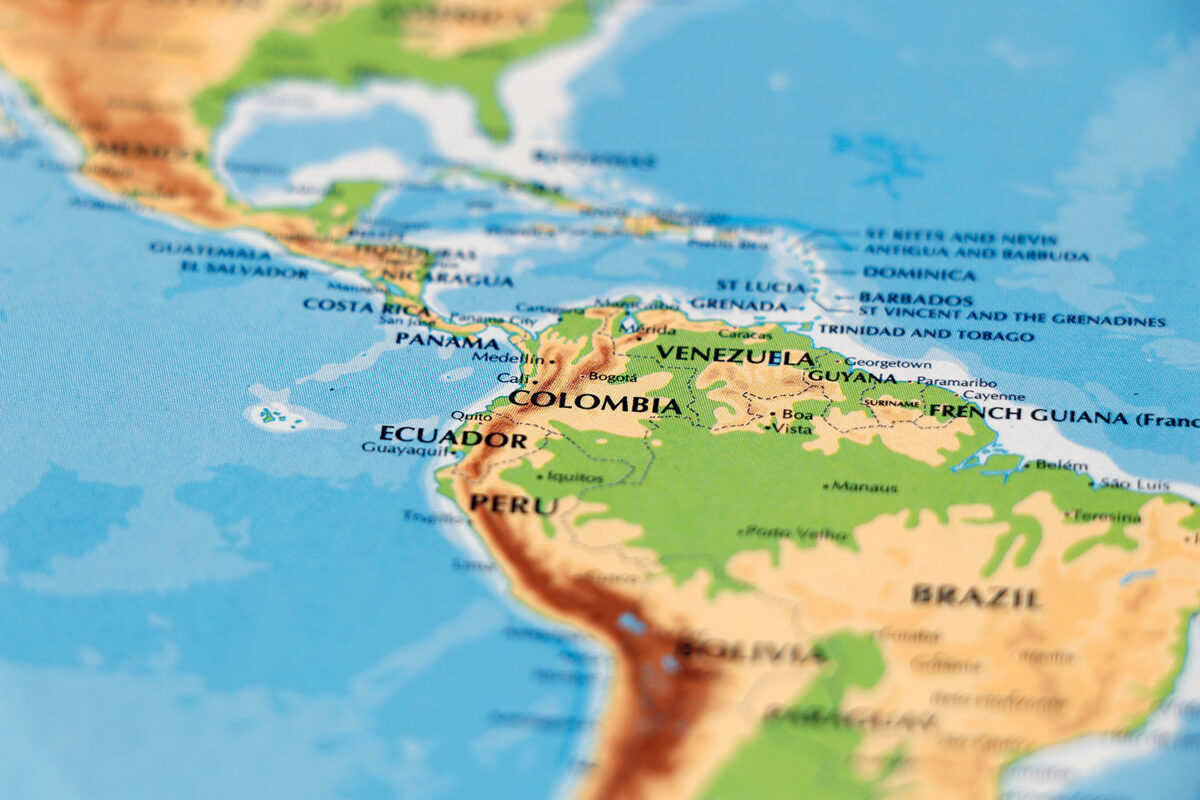The Arab Spring saw the overthrow of a number of long-term dictators and the emergence of new governments in countries such as Tunisia and Egypt, where the people voted for Islamic governance. In both nations the Muslim Brotherhood (MB) and Ennahda won stunning victories with large mandates marking the beginning of a new era in the Middle East and North Africa as a potential model for others to follow. But a decade on, both parties are no longer in power and the old regimes have re-emerged, burying a brief chapter of political Islam in those countries. The secular, progressive yet authoritarian regimes still preside over countries with broken economies. With a possible Arab Spring 2.0 now on the horizon, it has to be asked how did the regimes survive the revolution and how did the Islamic parties lose power after having won elections?
Both the MB and Ennahda emerged victorious in countries with an entrenched system where the rulers had been in power for decades. However, once these regime leaders were removed, the political architecture under them remained – and this would continue to pose the biggest problem for MB and Ennahda in implementing any real change following their election victories. In Egypt the military did not give up power, but removed its ailing 82-year-old former Air Chief Marshal, but kept control over all its prerogatives. In Tunisia Ben Ali cultivated the internal security services and the Constitutional Democratic Rally (RCD) party as his power base, and harshly repressed political participation, dissent, and public displays of Islam. The entrenched system in Tunisia was one of repression, corruption and nepotism. As a result Ennahda for most of its history was an underground group, but in both nations no purges took place following the election victories.
The elections that took place were flawed from the outset. The elections were for parliaments which were a relic of everything that was wrong in Tunisia and Egypt. Rather than change and replace such systems, MB and Ennahda both entered the system and ended up maintaining the existing secular systems. Both parties operated from a position of weakness and played a weak hand at every turn despite having popular support. Hosni Mubarak and Ben Ali used their internal security services and repression to remain in power, but in both countries the people wanted these systems overturned. But a bizarre situation emerged. Both the MB and Ennahda began calling for moderation, pragmatism and the need to not scare the international community. However, the people wanted real change, the MB and Ennahda called for maintaining the status quo. In order to maintain legitimacy with the minority secular elite in both nations, both parties’ turned out to be everything but revolutionary.
But a bizarre situation emerged. Both the MB and Ennahda began calling for moderation, pragmatism and the need to not scare the international community. However, the people wanted real change, the MB and Ennahda called for maintaining the status quo. In order to maintain legitimacy with the minority secular elite in both nations, both parties’ turned out to be everything but revolutionary
Both the MB and Ennahda were advocates of Islamic rule, this was how they gained traction with their respective populations and this is how they grew in popularity. The people that voted them both into power did so after supporting them for long and knowing their Islamic goals. But despite having popular support both parties constantly pursued consensus and as a result they regularly compromised in the hope of gaining legitimacy in the eyes of international powers. Ennahda abandoned making the shari’ah the main source of legislation in the new constitution and declared it wanted to maintain the secular nature of the nation.[1] Ennahda’s leader, Rachid Ghannouchi, explained with regards to establishing the Islamic system of government – the Caliphate, after his electoral victory: “Definitely, we are a nation state. We desire a state for Tunisian reforms, for the Tunisian State. As for the issue of the Khilafah, this is an issue that is not one of reality. The issue of today’s reality is that we are a Tunisian State that desires reform, so that it becomes a State for the Tunisian People, not against them.”[2] The Masses in Tunisia voted for Ennahda due to their Islamic credentials. Once they won the elections in 2011, Ennahda made it perfectly clear they had no plans to implement Islam. Ennahda’s actions reached the point of appeasement when it voted against laws that excluded members of the old regime from participating in the 2015 elections.[3]
Similarly, the MB went to great lengths to demonstrate its moderation. In its rush to placate so-called international opinion, they abandoned all commitment to Islamic governance. When it came to applying Islamic principles, they cited constitutional barriers and the need to keep minorities onside. When it came to applying Islamic economics, they cited the need to avoid scaring international investors and tourists. When it came to applying the Islamic foreign policy, they cited the need to show a moderate image and to appease the West. Slogans such as ‘Islam is the solution,’ were very quickly replaced with a call for a civil state. One of President Muhammed Morsi’s first acts as Egyptian president, of all things, was to send a communiqué confirming Egypt’s commitment to peaceful ties with Israel.[4] The initial calls for Islam were completely removed from Morsi’s statements as he settled into power.
One of President Muhammed Morsi’s first acts as Egyptian president, of all things, was to send a communiqué confirming Egypt’s commitment to peaceful ties with Israel. The initial calls for Islam were completely removed from Morsi’s statements as he settled into power
Both the MB and Ennahdah abandoned Islamic principles once they reached power and in the end, they turned out to have no real political programme or agenda. When both Ennahda and the MB took power, they inherited countries suffering from severe economic problems. However, both parties lacked any policies and had no road map to tackle these challenges. Tunisia has inherent limitations, it is a tiny nation, with a population of 11 million people and a GDP of $50 billion – smaller than the Nigerian city of Lagos. But Tunisia’s significant shale formations in the Ghadames basin, estimated to hold 23 trillion cubic feet of technically recoverable shale gas resources and 1.5 billion barrels of technically recoverable shale oil resources remained on hold.[5] The MB government fared even worse in Egypt. The Muhammed Morsi government brought great confusion and instability to the country due to their decision making. Policy positions were taken and then constantly reversed due to opposition. In both countries the economic and social situation worsened due to the lack of policy development and at times outright incompetence. The reality is, looking back at the period both the MB and Ennahda were in power, they lacked any principles aside from compromise and acted as though they still feared remnants of the regime by constantly enacting only half measures and eventually completely compromising on Islamic governance.
In both Tunisia and Egypt, the MB and Ennahda faced significant repression from the long-term dictators and secret services. They came to power after defeating the established and deeply rooted opposition, an opposition that benefited from patronage from the secular dictators. In Egypt, the MB constantly operated from a position of weakness rather than with a confident strength even after enjoying widespread support. The secular opposition, Mubarak-era officials, and the business elite never accepted the MB electoral victory, their key demand remind that Morsi must step down.[6] As a result of MB’s soft hand on the opposition the MB constantly faced a persistent insurrection. Muhammed Morsi failed to integrate the opposition, divide them, or weaken them. As a result, opposition figures carried out regular, often violent, demonstrations to undermine Morsi’s rule, bringing the country to a standstill and eventually his overthrow.
Both the MB and Ennahdah abandoned Islamic principles once they reached power and in the end, they turned out to have no real political programme or agenda. When both Ennahda and the MB took power, they inherited countries suffering from severe economic problems. However, both parties lacked any policies and had no road map to tackle these challenges
Ennahda’s attempt to deal with the opposition in Tunisia was through constant appeasement and compromise. They hoped this would placate them and strengthen their position. Ennahda began by completely diluting Islamic governance by firstly abandoning it in the forming of the country’s new constitution and then abandoning it as a basis of its own party. It then went full steam ahead with pragmatism and transactional politics by becoming a minor partner in a ruling coalition in 2014 with its rival Nidaa Tounes, that represented the political and economic elite of the old era. As an act of mercy, Ennahda agreed to commit to allowing former senior figures from Ben Ali’s party back into political life. It further backed an unpopular draft bill that gave amnesty to those businessmen accused of financial crimes. This was, Ennahda said, a “strategy of consensus” that was required for the greater cause of a successful democratic transition. Seeking consensus as a strategy, despite winning an election and having mass support weakened the party’s image and by governing in a coalition with old regime members and acquiescing to western economic policies, Ennahda lost credibility as well as much of its supporters. Despite winning at the elections, Ennahda constantly reassured the secular and liberal factions in Tunisia and foreign media – of its democratic credentials. The mandate from the masses became secondary to them.
A decade ago, parties that consisted of Muslims, who had for long been oppressed, marginalised and tortured, managed to get into power after a long struggle. But whilst they got to power, Islamic governance never did and at the first opportunity it was abandoned to appease the secular elements in the hope of gaining legitimacy. Whilst many within Tunisia and Egypt longed for real change a decade on, this remains elusive as the parties they supported refused to deliver what they had for long promised and what the people voted them in for. Therefore, it’s not surprising both the MB and Ennahda are no longer in government. Islamic governance did not fail in the Arab Spring, for it was never implemented by MB or Ennahda. Both parties, in an attempt to appease international pressure and the old regime which they recognised had never been fully supplanted, decided to play the long game of compromise and gradualism. The gradual implementation of islamic governance or in the case of Tunisia outright compromise still failed to please the old guard or placate international powers, and more importantly these compromises lost the support of their traditional supporters amongst the people. The old guard were more than willing to move out of the shadows to take back power directly as in the case of Egypt or through a new secular democratic party as in the case of Tunisia.
[1] Tunisia’s constitution will not be based on Sharia: Islamist party, Al Arabiya, 27 March 2012, https://www.alarabiya.net/articles/2012/03/27/203529.html
[2] Interview with Rachid Ghannouchi, France 24, 13 November 2011
[3] See, https://www.tandfonline.com/doi/pdf/10.1080/13629395.2015.1081449
[4] Confusion over ‘fake’ Egyptian letter to Israel, Guardian, 1 August 2012, http://www.guardian.co.uk/world/2012/aug/01/israel-egypt-letter-mixup
[5] See, https://www.eia.gov/analysis/studies/worldshalegas/pdf/fullreport.pdf
[6] Unpacking Anti-Muslim Brotherhood Discourse, jadaliyya.com, 28 June 2013, https://www.jadaliyya.com/Details/28855/Unpacking-Anti-Muslim-Brotherhood-Discourse





One comment
Omar Alansari-Kreger
5th January 2021 at 6:52 pm
There is an old Cold War truism suggesting one irrefutable nuance: governments change, but the lies stay the same. The spirit of the Arab Spring fizzled out before it enjoyed critical mass. Once that happened, the headlessness of the Arab Spring was made abundantly obvious. Few scholarly studies have critically parsed the functional legacy of the Arab Spring in terms of its residual legitimacy. To that effect, here are some examples of open ended questions requiring much needed scholarly closure: was there any binding leadership inspired under an aspiring supranational alliance? What were the goals of each revolution that developed under the auspicious of the Arab Spring & how did each fan-out comparatively?
What role did foreign intelligence agencies such as the CIA, MI5, French Intelligence, FSB, & Mossad play in fomenting the cultivation of revolutionary discord among the exasperated masses before the actual movement leading to the Arab Spring reached critical mass? Any crash course in world history agrees on one universal principle: the real work of revolution begins once the old guard is deposed or in the very least brought under the strict subordination of the new government. Hence, transitions of revolutionary power exceed more than a simple rebranding & repackaging of the old regime as what primarily happened post-Arab Spring.
However in practice, the immediate aftermath of “homegrown revolution” fashioned under Arab Spring fervor created nothing but raw opportunism for seasoned autocrats turned aspiring dictators. This led to the renegotiation of old power alliances through “renewed configuratory parameterization.”
Nonetheless, the existential turned million dollar prosecutorial questions of the Arab Spring are wrapped in obviating curiosity: are Arabs better or worse post-Arab Spring? Has the overall quality of life improved for Tunisians where softer aspects of revolution developed? What serious infrastructure projects have been proposed & pursued? Has corruption eased or intensified against fluctuations of unemployment?
In many ways, the Arab Spring proved to be little more than a fluke turned hollowed geo-political shell operation…